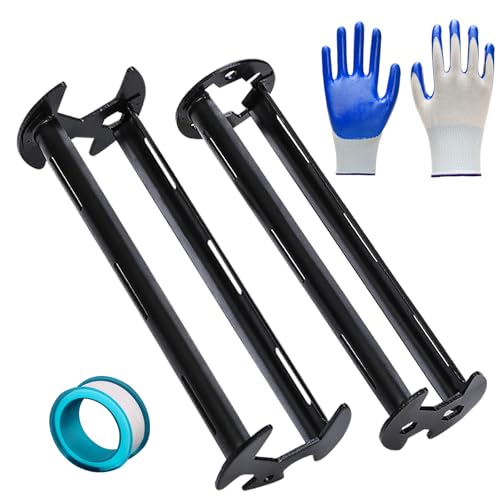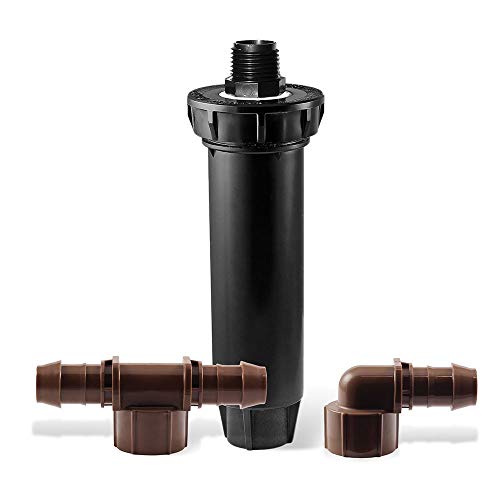Hi All,
So my home (located in Iowa) has 50+ year old cast iron waste pipe under the unfinished basement concrete that I anticipate I may need to replace sometime in the next few years. The way the house is arranged, there is approximately 80' of drain that is buried. All the vents are copper stacks.
Long story short, I had water come up through the basement floor last summer because the septic tank filter became blocked up. I had the lines televised, and while there was no visible damage or collapsing, the water was obviously getting pushed out of somewhere when water was dumped into the line. The plumber's best guess was that it was just a leaky lead and oakum pipe connection that was leaking due to the back pressure on the septic tank. After the filter was cleared, we had full flow again from all drains in the house into the septic tank inlet.
Anyway, I got looking around for plumbing quotes just to understand how much future replacement may cost me, and the prices were $15k-$30k (even for epoxy lining).
So, why I'm here today is, when the time comes for me to replace the piping, I'd like to go into it with somewhat of an educated game plan...and am open to your feedback.
What do you all recommend for:
-Concrete saw (and buy or rent)?
-Concrete blades?
-Handheld Air hammer or full jackhammer?
-Shovel/spade type?
-Best type of PVC pipe?
-Best type of PVC glue?
-Backfill material?
-Type of concrete?
-Buy or rent a mixer?
-Drill and install rebar into existing slab before pouring, or go without?
-Any other tips/recommendations/best practices before closing things up?
And then finally, regarding supporting the vertical stacks, would it be adequate to just use pipe strapping and wrap around the clean out fittings/hubs, and secure the pipe strap above to the floor joists?
Realistically, the way that the plumbing is arranged, I could work on most of the replacement all the while still having a functional bathroom to use, which is good. I'd probably take about a week off of work and take things slow in order to make sure they were done properly. It'd likely just be me working on it solo. I know it's not likely to be a fun job, which is why the professionals likely charge as much as I've been quoted.
Thanks all...
So my home (located in Iowa) has 50+ year old cast iron waste pipe under the unfinished basement concrete that I anticipate I may need to replace sometime in the next few years. The way the house is arranged, there is approximately 80' of drain that is buried. All the vents are copper stacks.
Long story short, I had water come up through the basement floor last summer because the septic tank filter became blocked up. I had the lines televised, and while there was no visible damage or collapsing, the water was obviously getting pushed out of somewhere when water was dumped into the line. The plumber's best guess was that it was just a leaky lead and oakum pipe connection that was leaking due to the back pressure on the septic tank. After the filter was cleared, we had full flow again from all drains in the house into the septic tank inlet.
Anyway, I got looking around for plumbing quotes just to understand how much future replacement may cost me, and the prices were $15k-$30k (even for epoxy lining).
So, why I'm here today is, when the time comes for me to replace the piping, I'd like to go into it with somewhat of an educated game plan...and am open to your feedback.
What do you all recommend for:
-Concrete saw (and buy or rent)?
-Concrete blades?
-Handheld Air hammer or full jackhammer?
-Shovel/spade type?
-Best type of PVC pipe?
-Best type of PVC glue?
-Backfill material?
-Type of concrete?
-Buy or rent a mixer?
-Drill and install rebar into existing slab before pouring, or go without?
-Any other tips/recommendations/best practices before closing things up?
And then finally, regarding supporting the vertical stacks, would it be adequate to just use pipe strapping and wrap around the clean out fittings/hubs, and secure the pipe strap above to the floor joists?
Realistically, the way that the plumbing is arranged, I could work on most of the replacement all the while still having a functional bathroom to use, which is good. I'd probably take about a week off of work and take things slow in order to make sure they were done properly. It'd likely just be me working on it solo. I know it's not likely to be a fun job, which is why the professionals likely charge as much as I've been quoted.
Thanks all...
Last edited:






















































